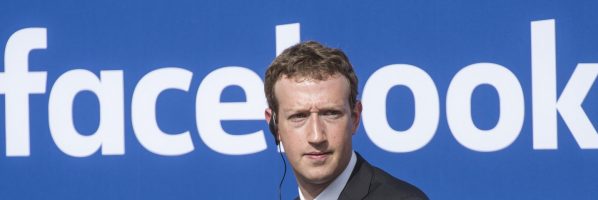Fighting Fake News, Working Mothers, and More – Boston News

Let’s explore some of the most interesting stories that have emerged from Boston business schools this week.
Lazy Thinking, Not Political Bias, Drives Fake News – MIT Sloan Newsroom
MIT Sloan Associate Professor David Rand and the University of Regina’s Gordon Pennycook recently published a new study that illuminates what actually perpetuates fake news—a “lack of analytical thinking.”
Professor Rand writes, “Our study suggests that falling for fake news is a symptom of cognitive laziness rather than motivated reasoning or self-deception. That is, contrary to popular belief, it is not the case that people are thinking too much about the wrong things. Rather, a little thinking might go a long way to fix the problem of fake news.”
In a study that surveyed “3,446 participants to rate the accuracy of headlines from actual news stories from Facebook,” the duo found that “people who engage in more analytic thinking, as measured by the Cognitive Reflection Test, are better at discerning true from false—regardless of identified motivations or political biases.”
You can read more about the research here.
What’s Your Carbon Footprint? You Probably Have No Idea. – D’Amore-McKim Blog
In a recently published study, D’Amore-McKim Professor Amir Grinstein surveyed 1,000 people to “guess the amount of CO2 emitted from burning one gallon of gasoline and the amount of calories in one gallon of whole milk.”
The goal was to “examine people’s knowledge of their own carbon footprint and how they can better educate themselves about the real impact they have on the environment.”
Grinstein believes that in order to change the public’s understanding of its own carbon footprints, they must have a “better understanding of how CO2 emissions play a role in everyday life allows people to decide if they’re willing to step up and change.”
Check out the full article here.
Kids of Working Moms Grow Into Happy Adults – Working Knowledge
New research from Harvard Business School Professor Kathleen McGinn found that, despite the narrative, working mothers often lead to happier and more successful children.
McGinn, the Cahners-Rabb Professor of Business Administration, says, “People still have this belief that when moms are employed, it’s somehow detrimental to their children. So our finding that maternal employment doesn’t affect kids’ happiness in adulthood is really important.”
The preliminary results of McGinn’s work were originally published three years ago, specifically regarding the career success of daughters of working mothers, in contrast to stay-at-home mothers.. When the story reached The New York Times, however, there was some obvious blow-back. McGinn recalls:
“Many decried the research as another installment of the ‘mommy wars.’ But the most common response was from mothers who suffered guilt, self-doubt, and disapproval from others. They found our preliminary results to be welcome news.”
However, McGinn’s research, which was conducted alongside Mayra Ruiz Castro of Kingston University in the UK, and Elizabeth Long Lingo of Worcester Polytechnic Institute, found that the careers of sons of working mothers were not generally effected. Rather, their attitudes were different in contrast to stay-at-home-mothers.
“Sons are influenced in other ways when their moms work. The sons of employed mothers hold significantly more egalitarian gender attitudes—even more so than the daughters of stay-at-home moms, a finding that surprised McGinn because it shows that the influence of maternal employment may even outweigh well-documented sex differences when it comes to shaping people’s mindsets about appropriate roles for men and women.”
You can read more of the ground-breaking research here.
Harvard Looks At Facebooks Attempt to Take on Fake News

The amorphous impact social media has had on the collective social conscious, especially since the 2016 U.S. general election, has become a striking waypoint of how we all may interact in the near future. To potentially combat the negative outcomes of it, Facebook has crafted plans to transform its platform into a forum for “more meaningful social interactions,” even if it comes at a great cost to its founder, Mark Zuckerberg. Experts from Harvard Business School recently discussed the potential changes.
Columbia Research Illuminates Unconscious Cause of Fake News

Fake news, the most oft-repeated phrase of 2017, doesn’t just rise out of some malevolent direction. According to Columbia Business School, there are many social factors hidden in the process.
Fake news has become an epidemic of sorts, as the recent investigation into how Russia used divisive Facebook posts to possibly influence the presidential election demonstrates, planted stories can have a “powerful and multiplying effect” due to their circulation on social media. Reportedly, fake news possibly impacted elections France and Kenya, as well.
Gita Johar, the Meyer Feldberg Professor of Business at Columbia Business School, along with doctoral students Youjung Jun and Rachel Meng, published research entitled Perceived Social Presence Reduces Fact-Checking in which they discovered that people are less likely to investigate the veracity of ambiguous claims when they are “consumed in a group setting” and when that information “aligns with their own party affiliation.”
According to the article, Johar, Jun, and Meng “conducted eight experiments to evaluate how the presence of others affects the way that people evaluate information and the extent to which people verify ambiguous claims.” The study found that “perceiving the company of others seemed to influence people’s willingness to verify information, not how much they believed it.” Their research posited three potential reasons why “collective settings may suppress fact checking.”
- Individuals may exert less effort (and hence be less likely to fact-check claims) because they expect to ‘free ride’ on others.
- People may abide by social norms that lead them to take the words of others at face value.
- Crowds may inherently cause people to feel ‘safety in numbers,’ which decreases vigilance in general.
Johar concludes, “Animals in the wild hide out and feel safer in herds and, similarly, we feel safer in a crowd. When applied to information consumed on social media, this same instinct results in lower fact-checking.”
You can read more about the trio’s research on fake news stories on the official Columbia Business School website.
Rutgers Professor Unpacks Conflicting Globalization Views

Rutgers Business School recently explored the views of Management and Global Business Professor Farok J. Contractor, who unpacks the complex domestic and international impacts of globalization.
